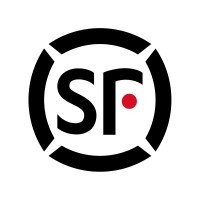
SF EXPRESS (EUROPE)
SF (SZSE:002352)was established in Shunde, Guangdong Province in 1993, headquartered in Shenzhen, China. Through years of development, SF has become the largest integrated logistics service provider in China and Asia, and the fourth largest in the world*. Centering on the logistics ecosystem, SF has continually developed its portfolio of product and service capabilities and has expanded to cover timeliness express delivery, economy express, freight, cold chain, pharmaceuticals, intra-city on-demand delivery, international express, international freight and freight forwarding, and supply chain, to provide customers with domestic and international end-to-end one-stop supply chain services. Meanwhile, through leveraging leading technology and research and development capabilities, SF strives to create a digital supply chain ecosystem and become a front-runner in the global intelligent supply chain. *According to Frost & Sullivan Report, in terms of revenue in 2023






